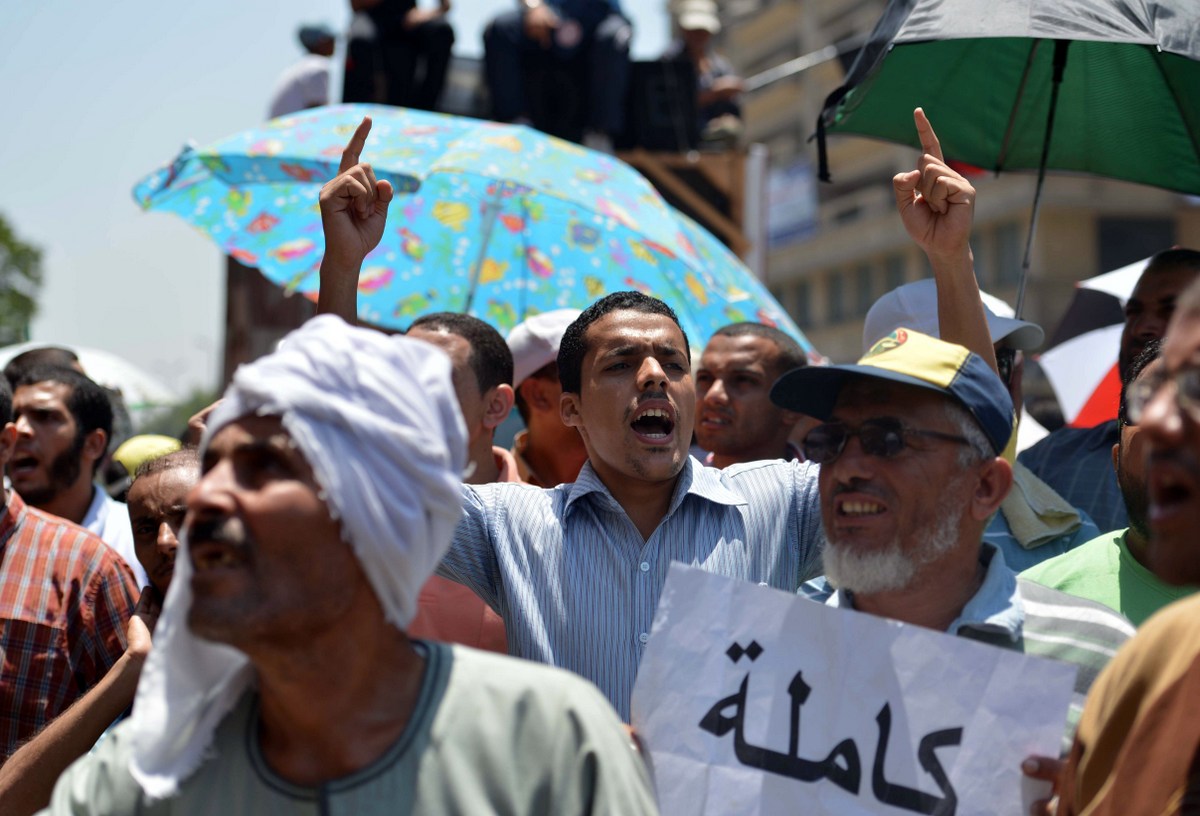GAZA CITY: The Hamas-run Gaza Strip on Sunday marked one year since the start of the deadliest-ever offensive waged by Israel on the isolated enclave, swathes of which still remain in ruins.
Sirens were to wail throughout the Palestinian territory at 11:20 am, when the first bombs of Israel s Operation Cast Lead, launched in a bid to halt years of rocket fire from the enclave, slammed into the coastal strip.
Several demonstrations were to be held during the day and Hamas Prime Pinister Ismail Haniya was to make a television address in the evening, with Hamas planning to stage events for 22 days, the length of the war.
The goal of these events is that this war and its massacres, which had no precedent, should remain before the eyes of the world, said Ihab Al-Ghussein, a spokesman for the Hamas interior ministry.
This is so that the leaders of this Zionist war will be judged, he added.
On Saturday, Dec. 27, 2008, Israeli warplanes launched simultaneous strikes on numerous Hamas targets throughout the territory of 1.5 million people, raids that killed at least 225 people in what was one of the bloodiest single days in the decades-long Israeli-Palestinian conflict.
The war ended 22 days later with mutual ceasefires by Israel and Hamas, with some 1,400 Palestinians, including more than 400 minors, and 13 Israelis left dead and entire neighborhoods of Gaza flattened in the onslaught.
Those were dark days. There was killing in every street and alley, said Dr Muawiya Hassanein, the head of Gaza emergency services, who had 16 paramedics killed as they struggled to collect the wounded.
The time has come now for unity and peace and justice and an end to the blockade, he said.
The end of the war ushered in the calmest period in years along the borders of Gaza as the ceasefires have held despite occasional violations by both sides.
But Israel has come under intense criticism from the international community and human rights groups who have accused it of disproportionate force during the operation, including the use of white phosphorous in residential areas.
A UN Human Rights Council-commissioned report released several months ago accused both Israel and Palestinian militants of committing war crimes and possible crimes against humanity during the offensive.
The Jewish state has also faced withering criticism over a blockade that it and Egypt imposed on Gaza after the Islamist Hamas first seized power in Gaza in June 2007.
The blockade, under which only basic humanitarian supplies are allowed into the impoverished territory where the vast majority of people depend on foreign aid, has been repeatedly slammed by rights groups as collective punishment.
The only things getting built in Gaza are desperation and despair, the New York-based Human Rights Watch said in a statement on the eve of the war.
Some 6,400 homes were severely damaged or destroyed during the war, according to UN figures.
Most of the tens of thousands of people who lost homes now share crowded apartments with relatives or huddle under tents supplied by aid groups, and the UN agency for Palestinian refugees (UNRWA) has started building homes out of mud bricks because of the shortage of concrete.
At the present rate of construction materials being allowed into Gaza it would take 530 years to reconstruct all the destroyed houses, UNRWA spokesman Chris Gunness said.
Gaza has been bombed back to the mud age, not the stone age.
Meanwhile analysts warn that the calm around the borders belies busy preparations for the inevitable next round of bloodshed.
Both Hamas and Israel are interested to maintain the current (situation). Israel wants a degree of political stability, and Hamas needs to rebuild its war capacity, said David Hartwell, a senior Middle East analyst at Jane s, a London-based information group specializing in defense issues.
But because both sides expect a conflict, eventually it happens, Hartwell said.



